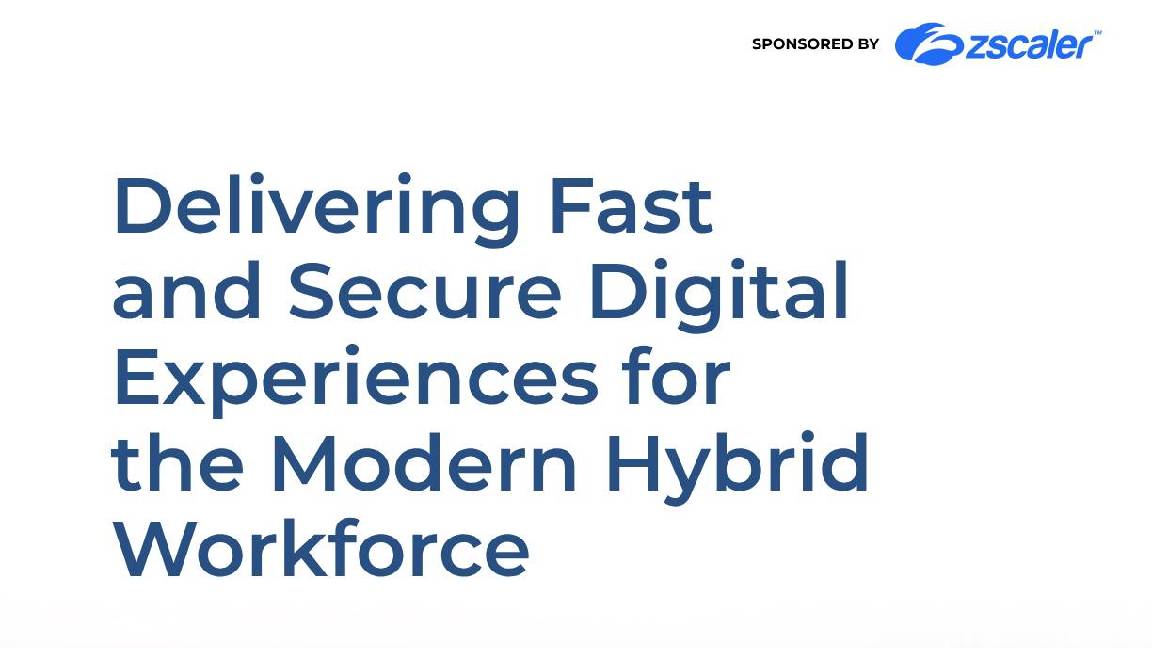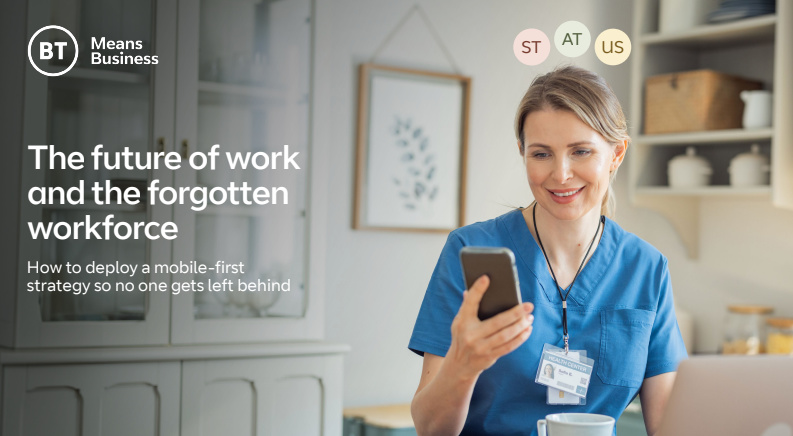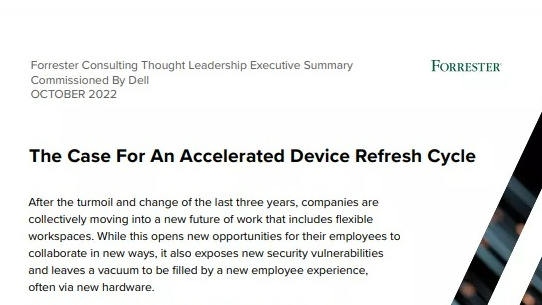Collaboration and the office of the future
The workplace is evolving and collaboration will be key to business success


For many of us, the humble office is where we work and meet with colleagues and business partners to do business and achieve organisational goals. But why do we still arrive and leave at a certain time, and why should we even have desks?
The reason for many is habit, it is something that we have always done and there is comfort in the familiar. But times are changing and so are the habits.
Offices are built to encourage collaboration. Meeting rooms exist to encourage cooperation and teambuilding. We stick to rigid hours so that anyone we need to talk to about an issue is there for it to be dealt with.
But the nine to five doesn't suit everyone. Nor does commuting into an office in town. There is a plethora of ways to meet with colleagues and customers outside of our office walls. There are better ways to collaborate, so we need to rethink what our offices are for.
A report by BT of 1,500 office workers in large organisations in France, Germany, Spain and the UK found that 73% would rather their IT department invest in mobile technology than technology for their office desk. Just over half (56%) said they would be even more efficient if they could update databases and work processes remotely.
The research also found that employees want technology upgrades to make mobile working easier, including smartphone screen sharing (69%), instant messaging (62%) and video conferencing (48%).
Another study, this time by Maintel, of 1,000 employed adults in the UK, found that 60% of respondents believe technology can replace in-person interaction in the workplace. Some 58% said that they would take advantage of the opportunity to spend less time in an office environment.
Sign up today and you will receive a free copy of our Future Focus 2025 report - the leading guidance on AI, cybersecurity and other IT challenges as per 700+ senior executives
How is the office of the future evolving?
Rufus Grig, CTO at Maintel says that employee expectations for when, where, and how they work continues to evolve. "This means businesses' management, policies, and IT systems must do the same," he says. "The real trailblazers put their employees' working styles first, and use technology to back that up. For some companies this still requires a culture shift, judging employees on outcomes rather than attendance."
Technology has played an important role in challenging the traditional concept of work, according to Alex Caminer, Behavioural Analyst at consumer behavioural insights agency, Canvas8. He says that the internet, as well as the mobility enabled by laptops and smartphones, has created a nomadic workforce.
"Workspaces are increasingly being designed with collaboration in mind. They're purposefully open, communal kitchens provide a nudge for sharing, and beers are encouraged at the end of the day. It isn't about the building. It's about the community. Companies are looking to provide the infrastructure to facilitate collaboration," he adds.
Tearing down the barriers to communication and collaboration can be a literal task for some organisations. Last year, maternity retailer Mothercare undertook a project to create an agile office that would accommodate employees with a considered choice of workspaces suited to their style of working. Jeremy Smith, group property director at Mothercare, said that the old building which house its headquarters was a rabbit warren of rooms and offices that had no connection to each other.
"Because colleagues never saw their peers in other departments they had a siloed approach to work. They completed their jobs and went home, without feeling that they were part of one team, working for one organisation," he said.
This led Mothercare use Office Principles to redesign and rebuild its head office in Watford. Among the changes were the removal of many internal walls as well as filling collaboration areas with natural light backed up by energy efficient LED lighting. Smith said the new design created a "buzz around the central collaboration area."
Collaboration is key to successful business
In some ways, the office of the future has already arrived, and as William Gibson would say, it is not evenly distributed. According to Mark Bridgeman, Managing Director of EON Reality UK, collaboration has gone beyond the idea of real time co-working thanks to virtual, augmented and mixed reality.
"Enterprise sectors from aerospace to warehousing to manufacturing, are already deploying mixed reality to deliver hands-on training and creating custom workspaces," he says.
"A training manager could be anywhere in the world, teaching practical lessons and experiencing every move their trainees' experience, monitoring results and interacting with them individually, even though they're all thousands of miles apart. And that isn't contained in one place. That's across mobile, group and immersive systems."
Chas Moloney, director of Ricoh UK, says that employees get younger and more familiar with the technology, employers must be more open to collaboration between their workers not only within their office but also in offices around the world.
"This can emerge in all different shapes and sizes, from being able to use social networks at work, to offering opportunities for working from home," he says. "As more organisations, cotton onto the idea of innovation within the workplace, it's those that continue to ban social media and restrict employee collaboration that will be left behind."
A line must be drawn between a collaboration free-for-all and a completely shut-down infrastructure. The most successful businesses in the future will listen to what employees want and then settle for a standard set of collaboration tools so that collaboration siloes are avoided.
Rene Millman is a freelance writer and broadcaster who covers cybersecurity, AI, IoT, and the cloud. He also works as a contributing analyst at GigaOm and has previously worked as an analyst for Gartner covering the infrastructure market. He has made numerous television appearances to give his views and expertise on technology trends and companies that affect and shape our lives. You can follow Rene Millman on Twitter.
-
 The modern workplace: Standardizing collaboration for the enterprise IT leader
The modern workplace: Standardizing collaboration for the enterprise IT leaderHow Barco ClickShare Hub is redefining the meeting room
-
 Interim CISA chief uploaded sensitive documents to a public version of ChatGPT
Interim CISA chief uploaded sensitive documents to a public version of ChatGPTNews The incident at CISA raises yet more concerns about the rise of ‘shadow AI’ and data protection risks
-
 'Digital hide-and-seek': Workers are wasting hundreds of hours a year sourcing the information they need to carry out their role
'Digital hide-and-seek': Workers are wasting hundreds of hours a year sourcing the information they need to carry out their roleNews Knowledge workers globally are wasting a quarter of their working week tracking down information, new research from Atlassian has revealed.
-
 Untethered: How CIOs and CISOs are paving the way for the new hybrid workforce
Untethered: How CIOs and CISOs are paving the way for the new hybrid workforceWhitepaper Effective techniques to transition from exposed legacy infrastructure to an effective zero trust strategy
-
 Unlocking the power of your digital services
Unlocking the power of your digital servicesSponsored Businesses have invested significant cash into technology since COVID-19, but are they really getting their money's worth?
-
 Delivering fast and secure digital experiences for the modern hybrid workforce
Delivering fast and secure digital experiences for the modern hybrid workforceWhitepaper A new approach to digital experience monitoring that can monitor the health of all systems
-
 Collaboration is the glue that holds your business together
Collaboration is the glue that holds your business togetherSPONSORED A combination of productivity tools and cloud telephony can enable the best from your workforce
-
 The future of work and the forgotten workforce
The future of work and the forgotten workforcewhitepaper How to deploy a mobile-first strategy so no one gets left behind
-
 The case for an accelerated device refresh cycle
The case for an accelerated device refresh cycleWhitepaper Achieving a more cost-effective device lifecycle overall
-
 Employees are choosing how they work
Employees are choosing how they workWhitepaper And with the right secure digital strategy, this could be a great thing for your business: today and far into the future
